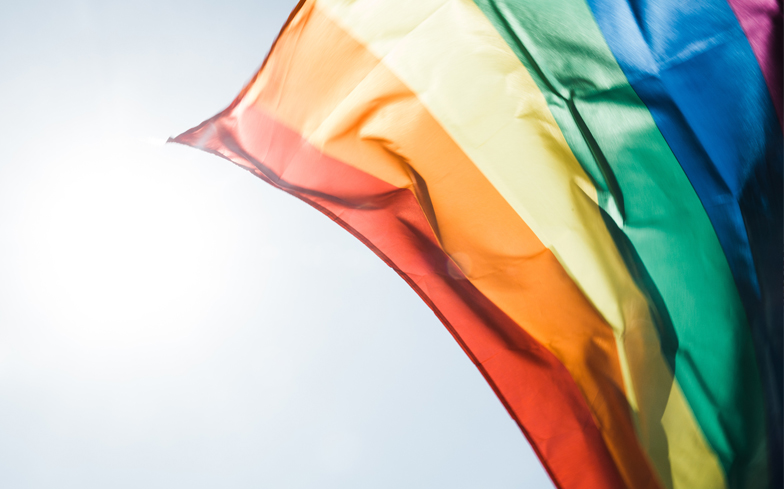
“For many LGBTQ+ young people, home is far from safe or comfortable.”
12 weeks ago when I joined Just Like Us, the LGBTQ+ Young People’s charity as Chief Executive, I had no idea of the challenges that would meet us in the subsequent months. Ordinarily this time would be spent sending our ambassadors, LGBTQ+ 18-25 year olds around the country to deliver workshops to classrooms, supporting their journey towards LGBTQ+ inclusion.
We would be preparing for School Diversity Week, our flagship annual event that gives teachers everything they need to support LGBTQ+ young people in schools and celebrate diversity in sexual orientation and gender identity; held in the final week of June. And our Pride Groups, LGBTQ+ and Allies groups in schools across the UK would be meeting weekly to discuss a variety of topics from poster campaigns to uniforms to Pride celebrations.
Within a few weeks of my appointment, everything had changed. The closure (or partial closure) of schools across the country meant many of our work streams had vanished. My team – who I had barely gotten to know – were now distributed at homes between Brighton and Manchester. School visits were cancelled. The fact my home internet had always been a bit twitchy was suddenly a huge problem and my cat wouldn’t stop walking over my keyboard. Most significantly, we knew that LGBTQ+ young people were now at home, unable to leave.
According to a piece of research commissioned by Just Like Us, while straight young people will confide most often in their families, LGBTQ+ young people are far more likely to confide in their friends. Many LGBTQ+ people have a “chosen family”, a group outside of their family who they turn to for support. LGBTQ+ young people, the people for whom Just Like Us exists, are now separated from this family and support network.
As someone who has spent a large amount of their career working in LGBTQ+ education, I’ve been talking about how difficult it is to be LGBTQ+ in school for years now. If it’s so bad being LGBTQ+ in school, wouldn’t a few weeks at home before the summer be welcome? This thinking is based on a simple assumption: that home is a safe and comfortable place to be. Unfortunately for many LGBTQ+ people, this simply isn’t the case.

The government’s National LGBTQ+ Survey released last year found that young people were more likely than older people not to be open with any of the family they lived with. Over 40% of 16-17 year olds and almost 30% of 18-24 year olds were not open to their family about their identity. Confinement to the house is one thing, but being unable to speak on the phone through fear of being overheard, to be conscious of what you access on the internet through fear of being outed to a family and being unable to leave will bring untold stress to young people across the country.
In addition to this, 29% of LGBTQ+ people surveyed had experienced an incident involving someone they lived with because they were LGBTQ+. The most common types were verbal harassment (14% experienced this), disclosure of their LGBTQ+ status without permission (14%) and coercive or controlling behaviour (9%). For many LGBTQ+ young people, home is far from safe or comfortable.
It became clear that we needed to find a way to deliver the LGBTQ+ inclusive content young people might usually have at school for an audience who were now confined to home, both to ensure young people learn about the rich history, diversity and talent that exists within our community and also to celebrate their identities and sense of community at a time when they are socially isolated.
School Diversity Week: Home Edition was born. For the last week of June (22-29), Just Like Us will be running a week’s worth of interactive masterclasses in partnership with Facebook; delivered by familiar faces and experts to an audience of young LGBTQ+ people at home. We want to send a strong signal that while LGBTQ+ young people may be isolated from their chosen families and loved ones, there is a vibrant, diverse and talented community here waiting for them.
I am incredibly lucky to be supported by a hardworking and highly effective team, all of whom have dedicated the last few weeks to quickly reworking our existing model to meet our new circumstances. Despite the difficulties that we are facing during this time, Just Like Us will continue to platform the voices of young people across the LGBTQ+ community who have a voice for the benefit of those who do not.
For more information on Just Like Us, visit their website here.



